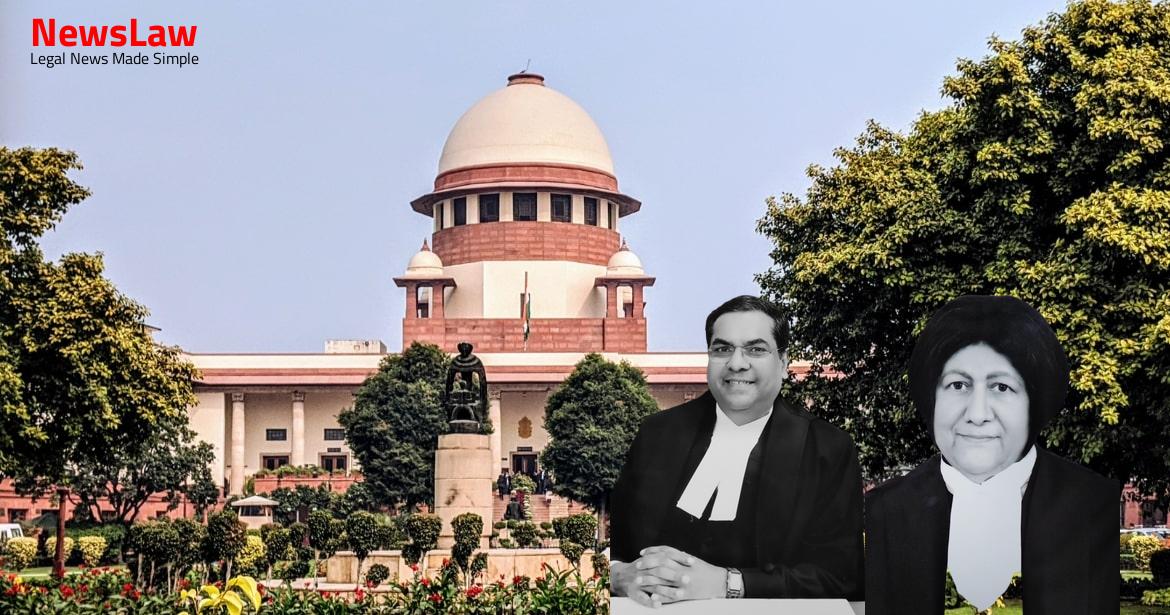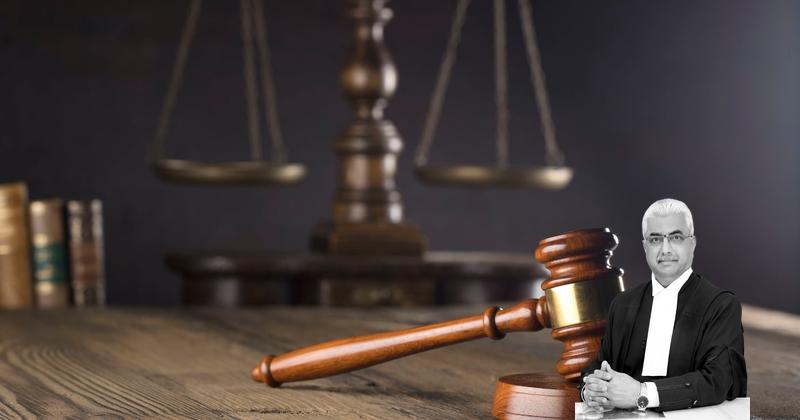Delve into the complexities of a recent legal case where the court scrutinized the search and seizure procedures under the NDPS Act. The court’s meticulous legal analysis uncovered discrepancies in the evidence presented, highlighting the significance of adhering to procedural norms in such cases. Follow along to understand how the court’s judgment navigated through the intricate details of search and seizure challenges.
Facts
- The appellant, A-1, was charged with carrying ganja in a car while traveling from Raipur to Pendra Road.
- The Station House Officer (SHO) received secret information, conducted a search, and found 47.370 Kgs. of ganja in three bags in the car’s dickey.
- Samples were collected, sent to the Forensic Science Laboratory (FSL), and a charge-sheet was filed for an offence under Section 20(b) of the Act.
- Seven witnesses, including two independent witnesses (CWs 1 and 2), were examined by the prosecution.
- A-1 challenged his conviction under Section 20(b)(ii)(C) of the Act and the 10-year imprisonment sentence upheld by the High Court of Chhattisgarh.
- Special Court found entries and documents by PW-7 corroborated his oral testimony and established guilt of the appellant beyond reasonable doubt.
- High Court held that testimony of Head Constable, Constable, and PW-7 remained unshaken, confirming compliance with Act requirements.
- A-2 (Reena Das) was acquitted by Special Court due to lack of mention in testimony, non-service of Section 50 notice, and lack of proof of possession.
- State did not appeal against acquittal of A-2.
- High Court confirmed conviction of the appellant based on unshaken testimony of PW-7.
- Independent witnesses CW-1 and CW-2 claimed ignorance, not corroborating PW-7’s version.
- Special Court convicted the appellant and sentenced him to 10 years, while acquitting co-accused Reena Das.
- Appellant’s appeal was dismissed by High Court.
- Special Court concluded appellant’s guilt based on testimony of PW-7 and relied on testimony of Mr. N.L. Dhritlahre, who acted as both informant and I.O.
Also Read: Undisclosed Conviction for Dharna Under Police Act Leads to Overturned Election
Arguments
- The investigating officer admitted to fundamental flaws in the investigation such as not recording the statement of the actual owner of the vehicle.
- No notice under Section 50 of the NDPS Act was sent to Reena Das (A-2).
- The name of Reena Das was not mentioned in various documents except the FIR and Charge Sheet.
- There were discrepancies in the time mentioned across different documents.
- The ownership of the car, specifically the interrogation of the owner Bhumika Patel (PW-4), was not deemed material by the court.
- The appellant’s counsel highlighted omissions in the testimony of PW-7, including the lack of a search warrant, discrepancies in the property seizure memo, and the absence of independent witnesses.
- NDPS Act is a complete Code in itself
- Accused must explain possession of substance once procedure in Sections 42, 43, 49 & 50 is followed
- Corroboration of police officials’ testimony not always necessary with independent witnesses
- Lack of independent witness not fatal to prosecution case
- Independent witnesses turning hostile not ground for acquittal under NDPS Act
- Section 50 protection only applies to search of person, not vehicle or place
- Recovery from car boot exempts application of Section 50
- Informant being I.O. no longer a debated issue per Mukesh Singh case
- Accused presumed guilty once possession is proven under Section 54
- Concurrent findings of lower courts do not require interference
Also Read: Critical Analysis of Legal Principles in a High-Profile Criminal Case
Analysis
- The testimony of the witness and independent witnesses raises doubts about the search and seizure conducted by PW-7.
- Contradictions in the timelines provided by PW-7 regarding the arrival of witnesses and completion of formalities.
- The statements of the independent witnesses, CW-1 and CW-2, highlight discrepancies in the prosecution’s version of events.
- The denial of witnessing any search or seizure activities by the independent witnesses weakens the case against the accused.
- The lack of corroboration by independent witnesses poses a significant challenge to the prosecution’s narrative.
- The testimony of PW-7 and the independent witnesses do not align, casting doubt on the integrity of the investigation.
- The discrepancies in the evidence provided by PW-7 and the independent witnesses call into question the reliability of the prosecution’s case.
- The Special Court’s findings regarding the involvement of the co-accused do not align with the evidence presented.
- The prosecution failed to adequately address the contradictions raised by the independent witnesses, leading to a shaky case against the accused.
- Appellant is entitled to the benefit of doubt if doubt is cast on search and seizure
- Appellant should receive the same benefit as co-accused in similar circumstances
- Presumption under Section 54 of the Act requires prior establishment of recovery from accused
Also Read: Legal Analysis on Specific Performance Obligations in Land Sale Agreement
Decision
- The appeal is allowed.
- Judgments of the Special Court and the High Court convicting the appellant are set aside.
- The appellant is to be released immediately, except if held in connection with another case.
- No costs are awarded.
Case Title: SANJEET KUMAR SINGH @ MUNNA KUMAR SINGH Vs. THE STATE OF CHHATTISGARH (2022 INSC 883)
Case Number: Crl.A. No.-000871-000871 / 2021



